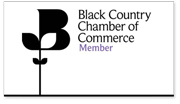6 Ways You’re Getting Your Website Content Wrong
We’ve all heard it a million times – “Content is King”. Indeed, the Periodic Table of SEO Success Factors’ first ‘element’ on the table is about quality content.
 So why is it so easy to say, but so much harder to execute? If you’re a fledgling business it’s unlikely you have the expertise to know what makes content good, engaging, and of course SEO friendly. Never fear! We’ve put together a quick and straightforward guide to the top 6 mistakes you’re probably making when it comes to content. Keep scrolling to see what they are and how you can avoid them!
So why is it so easy to say, but so much harder to execute? If you’re a fledgling business it’s unlikely you have the expertise to know what makes content good, engaging, and of course SEO friendly. Never fear! We’ve put together a quick and straightforward guide to the top 6 mistakes you’re probably making when it comes to content. Keep scrolling to see what they are and how you can avoid them!
Relevant Content
The first question you should be asking yourself is: “Is my content engaging?”
What makes your content unique and different from your competitors? Would someone want to read it for more than a few seconds? Is it useful to my consumer in some way? If you can’t come up with definite answers for these questions then your content probably isn’t very good. Some studies show that people only have an 8-second attention span online, so if your content doesn’t quickly grab your user’s attention, it’s unlikely they will continue to explore your website. This is the cornerstone for your SEO and digital marketing strategy, so it’s best to invest in your content upfront to avoid paying more later on.
Irrelevant Keywords
After bad content, the next most common mistake is having done little to no keyword research. When creating content, it’s crucial that your content contains keywords that are well-researched. Having keywords included in your article that users are likely to search for ensures that your content will rank better due to relevance.
For example, a website about immigration law that uses lots of technical or legal jargon, while entirely true and accurate, may perform very poorly in natural rankings. Why? Most people aren’t familiar with legal terminology or phrases and instead are typing into search engines: “How to obtain a UK visa”.
Having content that is written in the language your customer is using with keywords they are likely to search for, makes a big difference to your content’s relevance and can influence higher natural rankings.
Missing Keywords
This goes hand-in-hand with the above mistake, but it happens surprisingly often. Even if you’ve done your homework and researched the appropriate keywords for your content, if you don’t use them you may lose them; and by ‘them’ we mean your audience!
So how many times should I be using my searched keywords in a given article? Unfortunately, Google’s exact algorithm is kept pretty ‘hush-hush’ so there’s no definitive answer. Basically, use common sense. Think about the words you want a page to be found for, the words you feel are relevant from your keyword research. Then use them naturally on the page. Remember to always write for your audience!
Wow, That’s Old
Have a well-written piece of content about marketing strategy that you LOVE on your site from 2001? It may be good but it’s probably past its peak freshness according to Google’s search bots…and therefore low-down on the results page.
You can’t update your pages (or the publish date) every day thinking that will make them “fresh” and more likely to rank. Nor can you just add new pages constantly, for the sake of having new pages, and think that will give your content a boost…good try though. Google does have something it calls “Query Deserved Freshness (QDF).” If there’s a search that is suddenly very popular versus its normal activity, Google will apply QDF to that term and look to see if there’s any fresh content on that topic. If there is, that new or fresh content is given a boost in search results.
For example, when people search the term “hurricane.” If there’s no active hurricane, then the search results will likely contain listings to government and reference sites. However, if there’s an active hurricane, results will change and may reflect stories, news and information about the active hurricane.
If you’ve got the right content, on the right topic when QDF hits, you may enjoy being in the top results for days or weeks. Just be aware that after that, your page might be shuffled back in search results. It’s not that you’ve done anything wrong. It’s just that the freshness boost has worn off.
Be sure to take advantage of this freshness boost by producing relevant content that matches the real-time pulse of your industry.
Lack of Diversity
Have a ton of well-written and researched blog articles on dog grooming, but still finding your content’s SEO rankings lacking? It could be because of vertical search.
You may be wondering what the heck vertical search is and how does it differ from horizontal searching? Let’s take Google as an example. Its regular search engine gathers content from across the web in hope of matching many general queries across a broad range of subjects. This is horizontal search, because the focus is across a wide range of topics.
Google also runs specialized search engines that focus on images or news or local content. These are called vertical search engines, because rather than covering a broad range of interests, they’re focused on one segment, a vertical slice of the overall interest spectrum.
When you search on Google, you’ll get web listings. But you’ll also often get special sections in the results that may show vertical results as deemed relevant. Having good content in a variety of formats (images, videos, news articles, etc.) performs well in vertical search, and can help you succeed when your web page content doesn’t. So make sure you’re producing content in a variety of different formats to help boost your rankings.
Not Being a Direct Answer
This last ‘mistake’ is perhaps a bit debatable but we’ve decided to include it. What is being a direct answer you wonder? Search engines are increasingly trying to show direct answers within their search results. Questions like “How many inches in a foot?” or “How old is the president?” might give you the answer directly in the search engine’s results without you having to then click to a link to find the answer.
There’s some debate over whether having your content being used as a direct answer boosts your SEO results or not. After all, if someone gets the answer they need they may not then click on your link and isn’t that the whole point?
We currently consider sites being used as direct answer sources a good idea for two main reasons. First, it’s a sign of trustworthiness for search engine bots, which can help a site for other types of queries. Second, there is also some evidence that being a direct answer can indeed boost traffic to your site.
References:
The Periodic Table of SEO Success Factors


